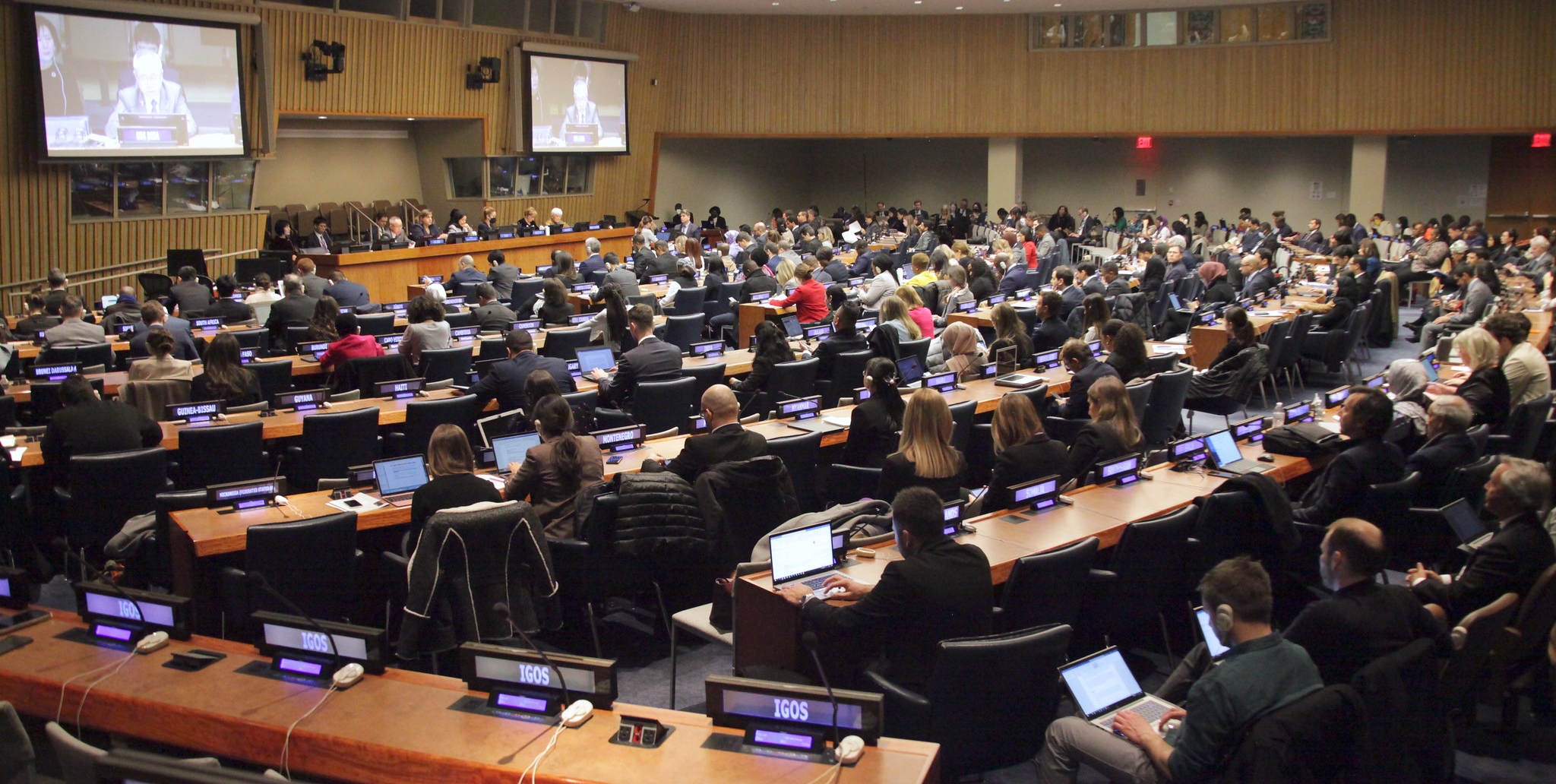The United Nations Commission for Social Development (CSocD) is a Commission within the United Nations Economic and Social Council (ECOSOC). Its main responsibility is to provide advice to the UN on social development issues. The Commission plays a vital role in promoting social policies that support the overall development goals of the UN, particularly in relation to eradicating poverty, advancing social integration, and ensuring full employment and decent work for everyone.
Purpose
Since the World Summit for Social Development in Copenhagen in 1995, the Commission has been the key United Nations body in charge of the follow up and implementation of the Copenhagen Declaration and Programme of Action.
Originally known as the Social Commission but renamed in 1966, CSocD was established by ECOSOC res. 10 (II) (1946). Its purpose was to advise UN ECOSOC on social policies of a general character and, in particular, on all matters in the social field not covered by the specialised inter-governmental agencies. The Commission’s mandate was further developed by UN ECOSOC resolutions 830J (XXXII) (1961), 1139 (XLI) (1966) and 1996/7. Since 2006, the Commission has taken up key social development themes as part of its follow up to the outcome of the Copenhagen Summit.

Priority Theme and Emerging Issue
Each year, the CSocD adopts a priority theme and an emerging issue to guide its work and discussions.
Meetings
The CSocD meets every year at the United Nations Headquarters in New York, typically in February.
Membership
Originally 18, membership has been increased several times, most recently in 1996, and now stands at 46. Members are elected by ECOSOC based on equitable geographical distribution (as noted in the following list) for four-year terms. Until 2002, terms began on 1 January and ended on 31 December. Under ECOSOC decision 2002/210, terms now begin immediately after the Commission’s regular session and end at the conclusion of a regular session.
Bureau
The Bureau comprises a chair and four vice-chairs. Bureau members are elected by the Commission at the first meeting of a regular session, held immediately after the end of a regular session for the sole purpose of electing a new bureau (ECOSOC decision 2002/210). In order to enhance the effectiveness of the work of the Commission, the officers elected to the Bureau of the Commission serve for a term of office of two years, in parallel with the review and policy cycle in accordance (ECOSOC resolutions 2010/10 and 2012/7).
 Welcome to the United Nations
Welcome to the United Nations
